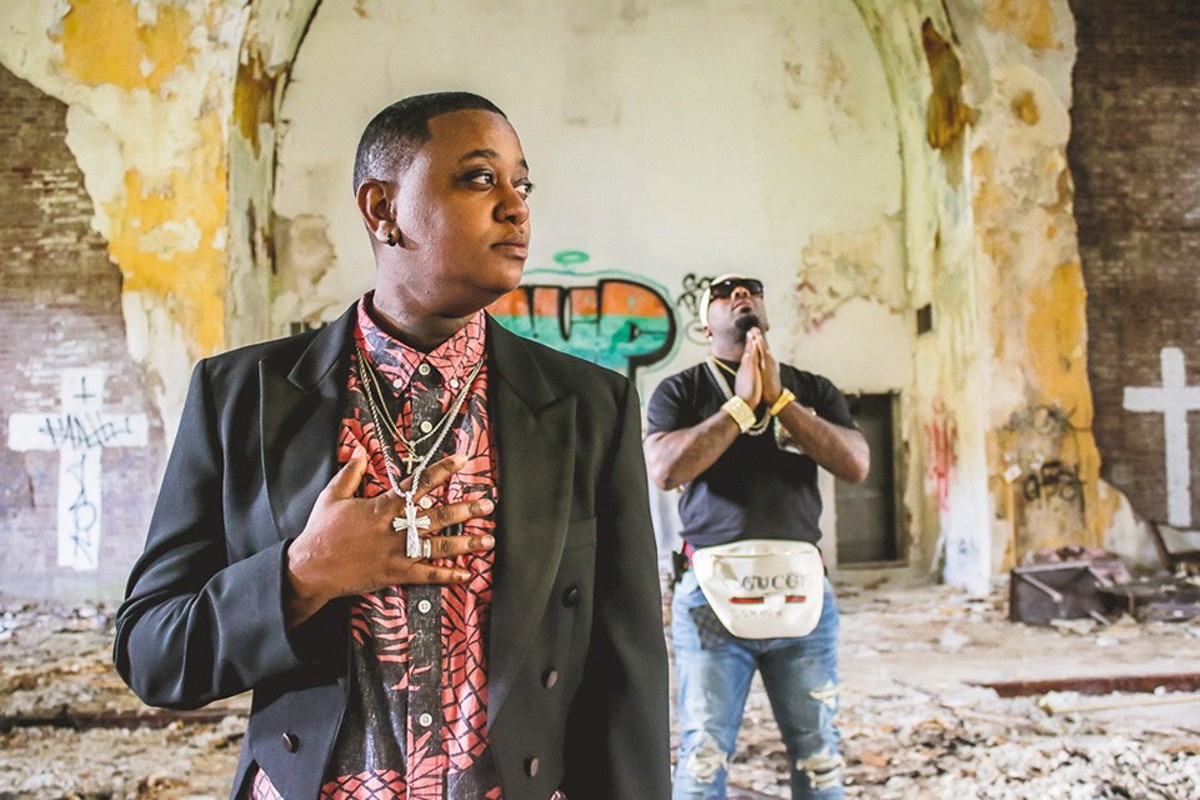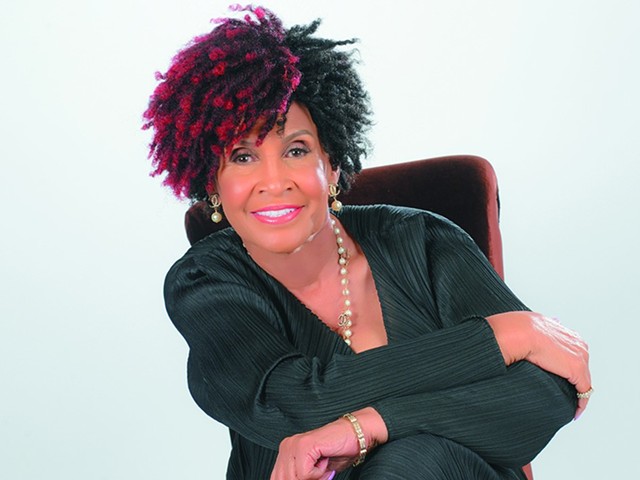The opening track on St. Louis rapper Bates' latest release, One God, makes clear from the outset that the album isn't for the faint of heart. In its first moments, "Vain" feels something like the beginning of a roller-coaster ride: A massive opening hit creates the initial jerk of movement, while several measures of more mellow sounds allow listeners to take a few last deep breaths before launching into an intimidatingly intense ride.
And that's just the beginning. On One God, the rapper born Tamara Dodd uses a framework of religious themes along with wide-ranging and consistently high-quality beats from St. Louis producer Major 88 Keys (born Kelvin Ellison) to showcase her versatility and cover significantly more lyrical ground than any of her previous work.
"It's basically my representation in totality — it's very far-reaching," Dodd says. "There's all different types of emotions that come along with it. You can be happy, you can be sad, you can wanna party, wanna laugh. It's all sorts of different stuff in there."
The album's title is an important part of that theme, Dodd says, tying together the vengeful, angry deity of the Old Testament with the considerably more mellow higher being of the New Testament.
She explains, "People read the Bible and they're like, 'God's just saving and loving,' when actually God has a really ugly side that people should be terrified of." Dodd says she wanted to highlight those darker elements of a higher being, "because without those things, there's no totality."
This theme opened the door for her to express herself more freely than she could on her tightly focused (and correlatively more restrictive) previous albums For Colored Folk and Strange Woman. But while One God's unifying theme allowed the lyricist greater aesthetic and conceptual leeway, Ellison's unrelentingly energetic beats ensured that openness didn't equate to ease for the rapper.
"A lot of the tracks are intimidating," Ellison admits. "Some producers won't use that word, but some of these tracks are intimidating to artists. You can't half-step on this whatsoever. Ninety-nine and a half ain't gonna do it.
"A lot of those tracks are complicated tracks," he continues. "They're varied, they have dynamics, so you've gotta maintain energy. You can't vocally let up, because the music behind you is still pushin'."
Unsurprisingly for those familiar with Bates' previous work, the resulting collaboration is sonically and lyrically uncompromising/ For those reasons, it isn't well-suited to casual listening.
The trap sounds of "Vain" and second track "Idolatry" soon give way to the rock-infused groove of "Pride," calling to mind Jay-Z's Rick Rubin-produced Black Album. Then comes what may be the album's standout track: "Apostasy," an old-school boom-bap banger on which Bates and company create a stormy, brooding atmosphere with the perfect balance of toughness and vulnerability.
The track also holds a special place for Dodd.
"'Apostasy' is my shit. It was the beat that started this," she says. "I grew up on that music. That's a sound that I latch onto every time I hear it. It reminds me of sitting in my parents' car, I'm hella little, and we're on the way to one of my daddy's baseball games.
"I love that song," she says. "I love it top to bottom — just a beautiful song."
Though the album was made available to the public on August 30, the official album-release party will be held this Friday at the Firebird, with appearances from Kourtney Nicole, Tootz, Mz. Tigga and Tank the Machine, among others.
But Dodd hasn't been sitting on her hands in the meantime. True to her reputation as one of (if not the) hardest-working emcees in the city, the creator of the Femcee Nation collective and the annual FemFest (which this year featured more than 50 artists between the festival's two stages) continues to be outspoken in her advocacy for women artists in and out of hip-hop. On October 3, she hosted the monthly Fresh Produce Beat Battle, held the first Wednesday of every month at the Monocle. And for the first time, the beat battle exclusively featured the city's female producers.
It's just one more element to a multi-faceted artist, one who contains multitudes.
"I don't have to be just street right here; I don't have to be just conscious right here," she says. "I can do all of this at the same time, because I'm using this idea of totality."






